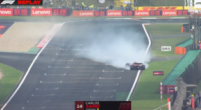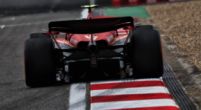F1 News

Are Mercedes unlucky with the new regulations? 'They'll be different for everyone'
Mercedes had a poor winter test. The team that has been dominant in Formula 1 for the last seven years seems to be faltering, but according to Jan Lammers they can quickly put things right.
The problems for Mercedes started during the first test day in Bahrain. A gearbox problem kept the team inside pretty much the whole morning, after which they didn't do a lot of kilometres in the afternoon either. Besides the reliability problem Mercedes also had to deal with a very unstable car.
A poor start in Bahrain
''You can say on the one hand that maybe they weren't quite ready for it. But on the other hand it could also have something to do with the changes in the regulations. They are slightly different for all teams'', says Lammers opposite the team. Motorsport.com. The former Formula 1 driver thinks Mercedes can solve this problem.
''Once the problem has been mapped out, Mercedes is of course pre-eminently a team capable of taking countermeasures. Maybe they were a bit overwhelmed by the problems they had during the test, but you can expect them to have things pretty much back on track for the first race.''
High-rake for Mercedes
In the paddock, it is thought that Mercedes' problems are due to their low rake. The car's low rake has worked very well in recent years, but in Bahrain, the cars with the high-rake came out on top now that the regulations have been changed. Do Mercedes need to change this now?
''You can see that many teams are now driving with a high rake as well. Mercedes may have to go that way now as well. If that is an area where you have not driven much before, then it is logical that as a team you will have a hard time with it. Every change leads to a kind of chain reaction. If you change your aerodynamics, you also have to change your mechanics, your damping, your suspension, your wheel positions, your differential, you name it'', concludes Lammers.



















































